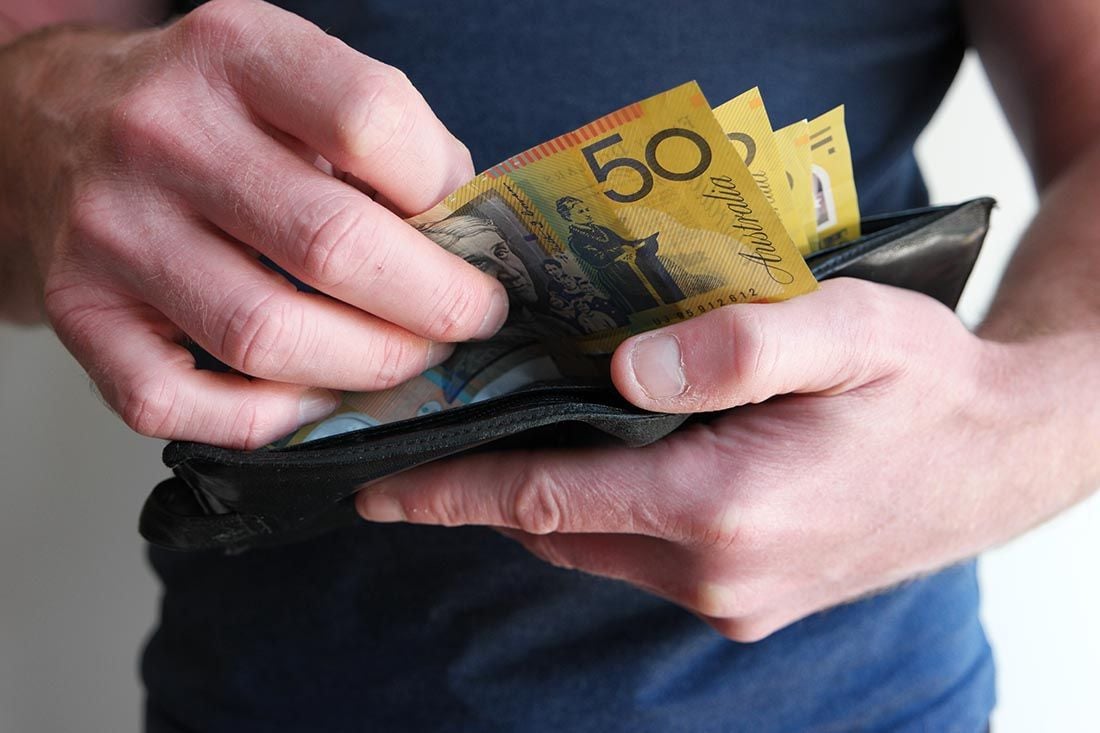Australian Dollar Outlook is "Bearish" say Australia and New Zealand Banking Group
- Written by: James Skinner
-AUD challenged by "trade war" and downbeat interest rate outlook.
-Trade war will dent global growth with adverse consequences for AUD.
-AUD housing market is deteriorating, feeding fears of rate cuts, not hikes.

Adobe Stock
The Australian Dollar is vulnerable to further losses during the months ahead, according to strategists at Australia and New Zealand Banking Group, who argue in their latest research note that both domestic and global factors have conspired to darken the outlook for the Antipodean unit.
Australia's Dollar has already been challenged in 2018 by domestic interest rates that are firmly on hold at record lows, at a time when other central banks are looking to raise rates from post-crisis lows, and now an escalating global "trade war" is threatening the currency with fresh losses given its position as a proxy for financial market risk appetite.
"The domestic story has been one of no change to monetary policy for the foreseeable future, and the market has generally believed the RBA’s assertion that the next rate move would be higher. So the AUD has been heavily driven by the direction of risk appetite and the broader USD," says Daniel Been, head of FX research at Australia and New Zealand Banking Group. "This is changing."
President Trump is pursuing restrictive legislation to govern investments from China, which is Australia's largest trading partner, into the United States and has recently ordered that a range of tariffs be levied against imports of more than $250 billion worth of Chinese goods. The move drew retaliation and threats of even further reciprocal measures from China.
All of this comes on top of earlier White House tariffs on imports of steel and aluminium into the United States from across the globe, including the European Union. The EU has since responded with its own levies on US motorcycles, jeans and whiskey, drawing conter-threats of even more tariffs from the White House, this time targeting the mighty European automotive sector.
"The recent escalation in the trade dispute between the US and China will dent business confidence. Of most concern is that the agents of the various disputes are engaging in this war with their eyes wide open," says Been. "The theme will not fade quickly, and through this month we are likely to see trade action from both the EU and China."
Been and the ANZ Research team say the "trade war" is significant because the upturn in the global economy is contingent on business investment in all its forms continuing apace, but that the uncertainty thrown up by increasing trade-related tensions risks seeing investment projects shelved during the months ahead.
This is a negative for the Australian Dollar because commodity exports are the lifeblood of the domestic economy and commodity prices are highly sensitive to sentiment toward the global economy. This means the Australian Dollar is not only a proxy for rising and falling growth of its main trade partner China, but also for the broader global economy as well.
This, together with a challenging domestic backdrop, explains Been's view that the Australian Dollar outlook is "bearish".
"Recent weakness in the housing markets in Sydney and Melbourne, which our economists think could persist for some time, has driven the market to start pushing rate hikes into 2020. In our view, the threshold for the market to contemplate rate cuts is a growing risk, though one that the RBA is unlikely to follow through on," Been writes, in a briefing Thursday.
Although Been says the Reserve Bank of Australia is unlikely to deliver on any eventual market expectations of an interest rate cut he also warns that if the global economy begins to slow in the 2020 year, as many think that it will, then it is worth contemplating what might happen to the Australian Dollar if it begins to look as if the central bank will never be able to raise its interest rate - or at least not for a long time.
"With this domestic narrative sitting over the global one, and with our models suggesting that the impact of liquidity will begin to squeeze valuation for the AUD lower, this provides little room for out-performance," Been says.
Been and the ANZ FX team have advocated that clients of the bank bet against the Australian Dollar during the weeks and months ahead. They recommended earlier in June that clients buy the Euro-to-Australian-Dollar rate around 1.5492 and target a move up to 1.6190, with a stop loss at 1.5200.
The AUD/USD rate was quoted 0.19% higher at 0.7354 Thursday but is down 5.8% so far in 2018. The Pound-to-Australian-Dollar rate was down 0.40% at 1.7799 but has gained 3.2% this year. The Euro-to-Australian-Dollar rate was down 0.03% at 1.5745 but is up 2.7% in 2018.
Advertisement
Get up to 5% more foreign exchange by using a specialist provider to get closer to the real market rate and avoid the gaping spreads charged by your bank when providing currency. Learn more here




